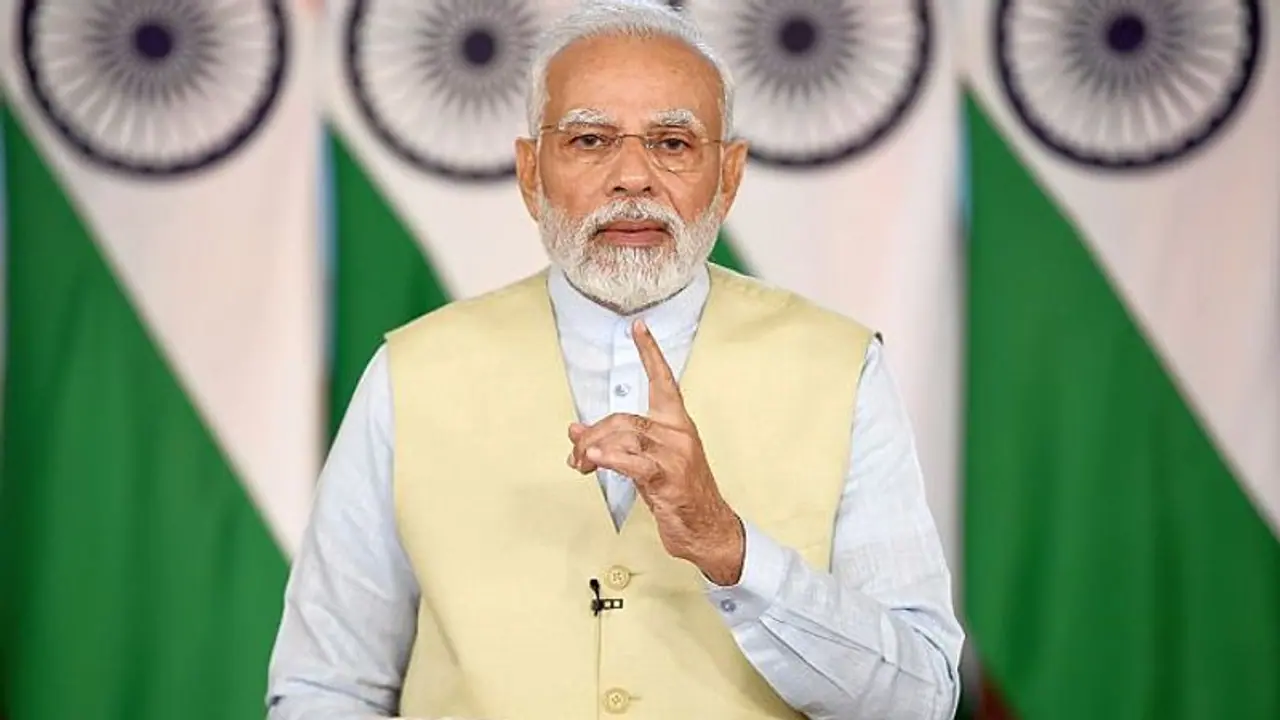The banking sector has become a medium for good governance and better service delivery, the Prime Minister said, adding Direct Benefit Transfer (DBT) has helped plug leakages and brought in transparency.
Prime Minister Narendra Modi on Sunday attributed India's sustained economic growth to the efforts of the BJP government to replace pre-2014 'phone banking' with 'digital banking'.

Referring to the previous UPA regime, he said under 'phone banking', instructions were given on phone to banks regarding whom they had to lend to and at what terms and conditions.
The economic progress of a country is directly linked to the strength of its banking system, he said after dedicating 75 Digital Banking Units (DBUs) to the nation.
The banking sector has become a medium for good governance and better service delivery, the Prime Minister said, adding Direct Benefit Transfer (DBT) has helped plug leakages and brought in transparency.
The government has so far transferred Rs 25 lakh crore through DBT and another installment under the PM-KISAN scheme will be transferred on Monday, he said. Under the Pradhan Mantri Kisan Samman Nidhi (PM-KISAN) scheme, a financial benefit of Rs 6,000 per year is provided to the eligible farmer families, payable in three equal installments of Rs 2,000.
Also read: Delhi liquor scam: CBI summons Delhi Deputy CM Manish Sisodia for questioning on October 17
With regard to DBUs, he said these will further financial inclusion and enhance banking experience for citizens. As part of the Union Budget 2022-23, Finance Minister Nirmala Sitharaman had announced setting up 75 DBUs in as many districts of the country to commemorate 75 years of India's independence.
The DBUs are being set up to ensure that the benefits of digital banking reach every nook and corner of the country. Eleven banks in the public sector, 12 in the private sector and one Small Finance Bank are participating in the endeavour.
DBUs will be brick-and-mortar outlets which will provide a variety of digital banking facilities to people such as opening a savings account, account balance check, printing passbook, funds transfer, fixed deposit investments, loan applications, application for credit or debit cards, and bill and tax payments, among others.
DBUs will enable customers to have cost effective, convenient access and enhanced digital experience of banking products and services all round the year. They will spread digital financial literacy and special emphasis will be given to customer education on cyber security awareness and safeguards.
(With inputs from PTI)
